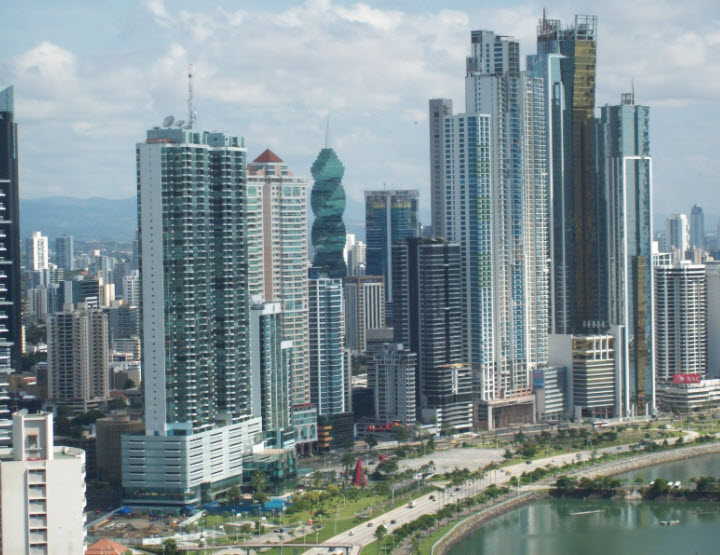Fitch Solutions reports that while Panama’s economy is strong, the trade war will weigh in on auto sales.
Key View
- We believe that the trade war between the US and China will prevent Panama’s regionally outperforming economic growth from translating into stronger vehicle sales, as it is so integrated into global trade.
- Although we believe that Panama’s economy will outperform the other Latin American countries, we expect the global trade uncertainty to keep consumers and businesses hesitant to commit to making large purchases, such as vehicles.
- A further worsening of trade relations between the US and China, or the US and other major trade partners, could further undermine government revenues, and consumer and businesses’ confidence in the country’s economy going forward.
We believe that the trade war between the US and China will prevent Panama’s regionally outperforming economic growth from translating into stronger vehicle sales, as it is so integrated into global trade. We highlight that Panama is over-reliant on the receipts from the Panama Canal, of which over 60.0% of total cargo transiting the canal is either coming from or going to the US, which makes it especially susceptible to global trade disruptions. Furthermore, the country’s vehicle sales in the first half of 2019 (H119) contracted by 6.8% y-o-y. This market weakness, coupled with the fact there is still no trade agreement in sight between the US and China, have led us to revise down our forecast for Panama’s vehicles sales in 2019 as both consumers and businesses alike hold off on committing to large purchases, such as vehicles. We now forecast total vehicle sales in Panama to contract by 6.3% in 2019, down from our previous forecast of a 4.4% expansion.
Global Trade Uncertainty To Hinder Vehicle Purchases
Panama – Vehicle Sales, Units % y-o-y
Fitch Solutions/INEC
Although we believe that Panama’s economy will outperform the other Latin American countries, we expect the global trade uncertainty to keep consumers and businesses hesitant to committing to large purchases, such as vehicles. Our Country Risk team believes that Panama will see economic activity accelerate in 2019, driven by a rebound in the construction sector as the industry recovers from an output-crippling strike in Q218, and for Panama’s economy to remain the best performing in Latin America (see chart below) in 2019 (see ‘Panama Growth To Accelerate In 2019, But Headwinds Loom’, June 4). We forecast Panama’s real GDP growth to reach 4.8% in 2019, compared to the Latin American regional average real GDP growth of 1.5% over the same period. However, we do not expect this strong performance to feed into new vehicle sales as the threat from the US-China trade dispute remains a major constraint to consumers’ willingness to make larger purchases.
Strong Growth Ahead By Regional Standards
Latin America – Real GDP Growth, % y-o-y
e/f = Fitch Solutions estimate/forecast. Source: National Sources, Fitch Solutions
That said, a further worsening of trade relations between the US and China, or the US and other major trade partners, could further undermine government revenues, consumer and businesses’ confidence in the country’s economy going forward. We believe that this could all culminate in weaker demand for new vehicles and an even larger contraction in vehicle sales for 2019. An escalation in the US-China trade war could also see Panama’s vehicle sales contract in 2020. That said, our current forecast for 2020 remains slightly positive at 3.3% growth, but the risks to our outlook are rising.
Our Country Risk team believes that despite the resumption of negotiations between the two sides following the G20 Summit in June, they maintain their view that a comprehensive trade deal between the US and China remains elusive over the foreseeable future due to fundamental differences and key red lines between the two sides. Since then the trade war has started to escalate with the US imposing further tariffs on Chinese imports (see ‘Trade Crib Sheet: Trade Agreement Not In Sight Despite De-Escalation Of US-China Tensions’, July 3 & ‘China-Reliant Exporters To Continue To Feel Fallout From Trade Uncertainty’, August 5). This indicates that the uncertainty among businesses and consumers in Panama will remain high and will continue to discourage the purchase of new vehicles over the remainder of 2019.
